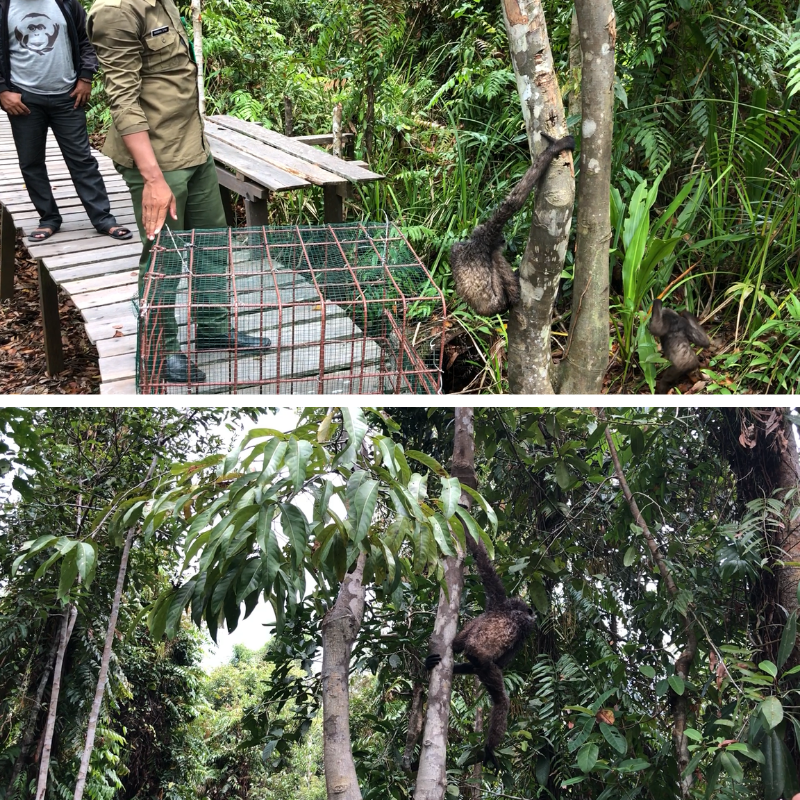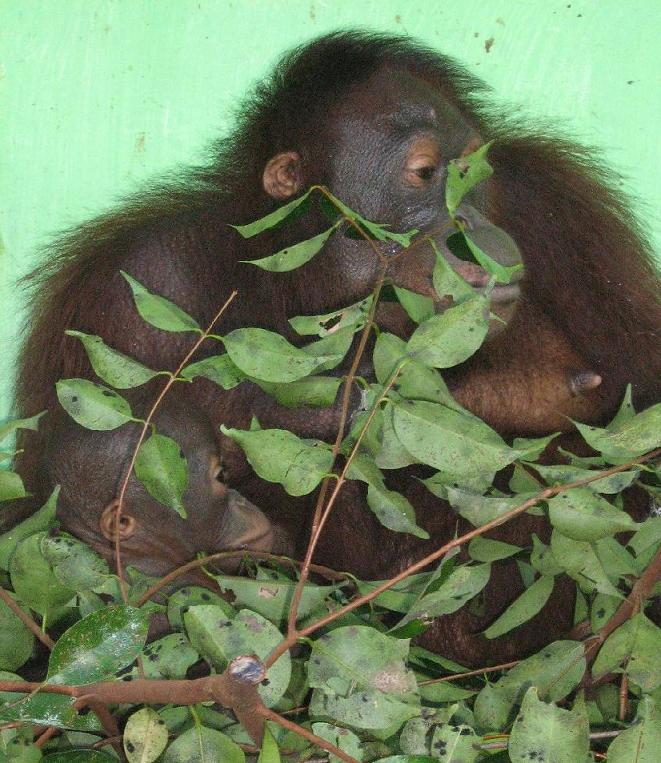Over the last few months of this year’s dry season alone, Orangutan Foundation staff have helped rescue and translocate double the number of orangutans than in the previous two years in Central Kalimantan, Indonesian Borneo. One of these handovers was young female Pegi who had been kept inside a cage for the past seven years, but orangutans of course are not the only species that are kept captive illegally.
Earlier this month our teams were called upon once again to assist with wildlife translocations, but this time for different species who had been rescued by government officials or handed over as pets.
Gibbons are released into the forest and explore their new home
A couple of gibbons were the first animals to be released into the forest. Once their transportation crates were opened at Camp Buluh, the pair could be seen climbing to the very top of the canopy where they’re most at home swinging from branch to branch- that was until they were interrupted by male orangutan Yoko. Coming face-to-face with a large primate several times their size might understandably be intimidating for a gibbon new to this habitat, but following a brief pause to observe one another, the individuals soon parted ways and continued roaming through the trees.
Yoko and newly released gibbon lock eyes for a moment
Also released with this pair of apes into the Lamandau Wildlife Reserve was perhaps one of the most beautiful tropical birds found in these forests- the Rhinoceros Hornbill. These large birds are a crucial seed disperser in the forest. After feeding on fruits and berries in the canopy, they can then carry the seeds for many miles before depositing them elsewhere. Our team were elated to see an individual finally stretch it’s winds and be released back into the wild by Camp JL.
A hornbill is transported for release at its new home within the Lamandau Wildlife Reserve
Our team’s final translocation was a young female sun bear named Bella. Without its mother, a sun bear cub may find life in the forest challenging as they’re yet to learn the best methods to search and forage for food. It’s for this reason why our team at Camp Gemini have introduced Bella into a habituation enclosure where she can first become accustomed to her forest surroundings before being released.
One-year-old Bella is introduced to her new temporary home at Camp Gemini
It’s worrying to know that some individuals still see wild species as potential pets, but it is at least reassuring for us to know that the Lamandau Wildlife Reserve is a habitat that is protected and can therefore offer the possibility of a new beginning for these wildlife species, as well as orangutans.
To help protect these forests, please show your support between midday 3rd to 10th December 2019 via our Big Give appeal, which will double any donations in this time!









